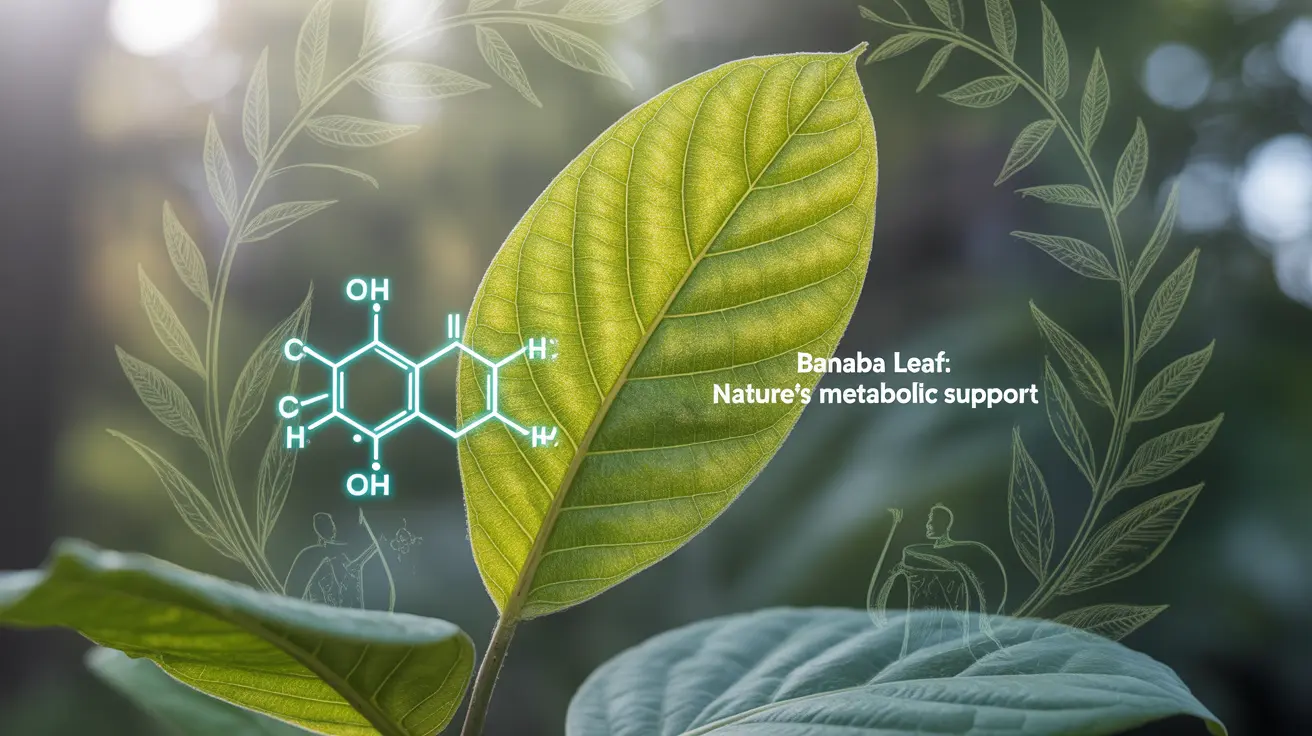Banaba leaf, derived from the Lagerstroemia speciosa tree native to Southeast Asia, has gained attention in the natural health community for its potential benefits in blood sugar regulation and weight management. This traditional medicinal plant contains unique compounds, particularly corosolic acid, that may help support metabolic health and glucose control.
As interest in natural alternatives for managing blood sugar levels continues to grow, understanding the science behind banaba leaf and its proper usage becomes increasingly important. Let's explore its benefits, effectiveness, and safety considerations in detail.
Understanding Banaba Leaf and Its Active Compounds
Banaba leaf's primary active component is corosolic acid, which belongs to a group of compounds called pentacyclic triterpenes. These substances have been studied for their potential to mimic insulin's effects in the body. The leaf also contains ellagitannins and other beneficial plant compounds that may contribute to its therapeutic properties.
Blood Sugar Management Benefits
Research suggests that banaba leaf may help regulate blood sugar levels through several mechanisms. It appears to enhance glucose uptake by cells and may improve insulin sensitivity. Some studies indicate that it could help reduce fasting blood sugar levels when used consistently.
How It Works
The corosolic acid in banaba leaf appears to activate glucose transport into cells, similar to how insulin functions. This action may help maintain healthy blood sugar levels, particularly after meals when glucose levels typically rise.
Weight Management Properties
Beyond blood sugar control, banaba leaf shows promise in supporting healthy weight management. Its effects on glucose metabolism may help reduce fat accumulation and support healthy body composition when combined with proper diet and exercise.
Metabolic Effects
- Enhanced fat oxidation
- Improved energy utilization
- Reduced lipogenesis (fat formation)
- Better glucose absorption in muscle tissue
Safety and Dosage Considerations
While banaba leaf supplements are generally considered safe for most people, proper dosing and precautions are essential. Typical dosages range from 200-400mg daily, though this can vary based on the specific product and concentration.
Potential Interactions
Those taking diabetes medications should exercise particular caution and consult healthcare providers before using banaba leaf supplements, as they may enhance the blood-sugar-lowering effects of these medications.
Frequently Asked Questions
- What are the health benefits of taking banaba leaf supplements for blood sugar control?
Banaba leaf supplements may help maintain healthy blood sugar levels by improving insulin sensitivity and glucose uptake in cells. The active compound, corosolic acid, appears to mimic insulin's effects in the body, potentially helping to regulate blood glucose levels.
- Can banaba leaf extract help with weight loss and obesity management?
Yes, banaba leaf extract may support weight management through its effects on metabolism and glucose utilization. It may help reduce fat accumulation and improve energy utilization when combined with healthy diet and exercise habits.
- What are the potential side effects of using banaba leaf for diabetes management?
Common side effects are generally mild and may include digestive discomfort or headaches. However, the most significant concern is its potential to lower blood sugar levels too much, especially when combined with diabetes medications.
- Is banaba leaf safe to use alongside other diabetes medications?
While banaba leaf can be used with diabetes medications, it should only be done under medical supervision. The combination could potentially lead to excessive blood sugar reduction, requiring careful monitoring and possible medication adjustments.
- How does banaba leaf compare to other natural remedies for reducing blood sugar levels?
Banaba leaf shows promising effects comparable to other natural blood sugar support supplements like berberine or gymnema sylvestre. However, its specific mechanism of action through corosolic acid makes it unique among natural options for blood sugar management.




